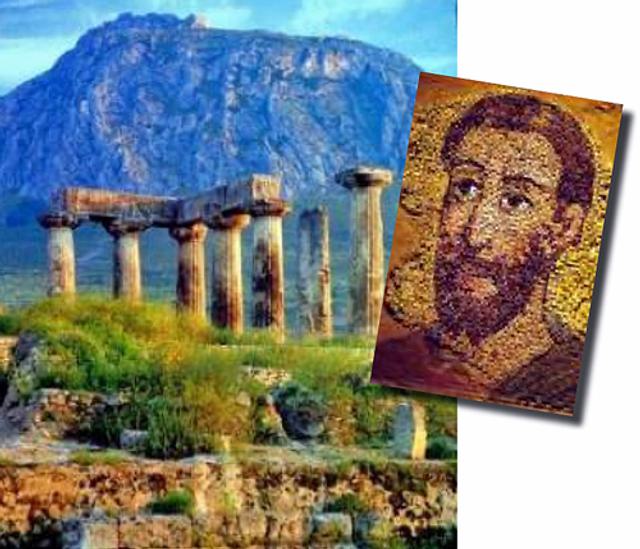The early Christian Church: Paul the apostle motivates his church’s donors – c. 56 AD
- Exhibited by
- Ian Clark (Church of England).
- Added
- May 13, 2010
- Medium of Communication
- Direct mail
- Target Audience
- Individuals
- Type of Charity
- Poverty/social justice, religion related
- Country of Origin
- Turkey and Greece
- Date of first appearance
- circa 56 AD
SOFII’s view
This could be the first ever appeal for regular, committed donors. In the early days of the Christian church the missionary Paul asked his supporters in the city of Corinth to set aside a small portion of their income regularly, to sustain victims of a famine and then later to support good works generally. Here Ian Clark explains the significance of Paul's letters to his followers, which subsequently became the foundation of the Christian Church's teaching on generosity and giving.
Creator / originator
The apostle Paul, a converted Jew and the first major Christian theologian and missionary. He wrote or inspired many of the letters that appear in the New Testament part of the Christian Bible.
Name of exhibitor
Ian Clark (Church of England).
Summary / objectives
Raising funds to relieve the Palestinian famine.
Background
The Christian missionary Paul founded a Christian church in the major Greek seaport of Corinth in the early 50s AD. A few years later whilst travelling in Macedonia and Turkey (200+ miles away across the Aegean Sea), he wrote two letters to the young Corinthian church. He advised the church members on how to deal with various problems that had arisen, and provided practical advice for everyday living and Christian teaching.
Influence / impact
Paul's teachings on Christian generosity that appear in the Corinthian letters have formed the basis of Christian giving for the last two thousand years. He taught that Christian charitable giving is a practical response to God's prior generosity to each one of us. He advocated that giving should be first to God, proportional to income, sacrificial and regular – the basis of modern committed giving. Research consistently shows that average giving levels of active members of faith communities are significantly higher than those of non-faith people.
Merits
The earliest in-depth teaching about giving and generosity in the Christian Bible, this story has been in continuous use in churches globally for the last two thousand years.
Other relevant information
Paul motivates his church donors
As he travelled round the eastern Mediterranean on his missionary journeys during the 50s AD, Paul heard about the severe famine that was affecting Jerusalem. So he appealed to the different churches to collect money to send off. In his first letter to the church in Corinth (1 Cor 16, 1-4) he asked them to set aside a proportion of their income each week, so he would get a better result than a single one-off appeal. He explained that this is what the church in Galatia (central Turkey) was already doing - and that was a much poorer and war-torn region than the prosperous Corinth seaport.
In his second letter (2 Cor 8-9) Paul provides a much lengthier theological rationale about Christian generosity and the grace of God. This time he compares the Corinthian's initial efforts to those of the churches in Macedonia (northern Greece), even though the latter were also suffering 'extreme poverty'.
Learning points
- A clear fundraising objective – the relief of the famine in Jerusalem.
- Using comparisons with other fundraising groups (churches) – peer pressure.
- The sacrificial giving of churches despite being in hardship and poverty.
- Using regular (weekly) giving to build up a bigger final total.
- Putting fundraising first in people's spending priorities ('On the first day of every week, each one of you should set aside a sum of money…' And, 'Give first to the Lord.')
- Developing the ancient Jewish tradition of giving a proportion of income ('a sum of money in keeping with your income …' . Jews were taught to give a variety of donations to God's work, including the regular tithe (10 per cent of income) and other one-off or annual gifts.
- Thanking the Corinthians for their past generosity – and encouraging them to do even better in future.
- Providing someone reliable (Titus) to take the collection to Jerusalem.
- Encouraging the Corinthians to send their own people to Jerusalem to monitor that the money was spent effectively (accountability).
- Teaching that donor's gifts should be motivated by God's generosity in providing their physical wealth and well-being, and spiritual salvation through Jesus' death and resurrection.
 View original image
View original image
 View original image
View original image
Also in Categories
Tags
- History
















